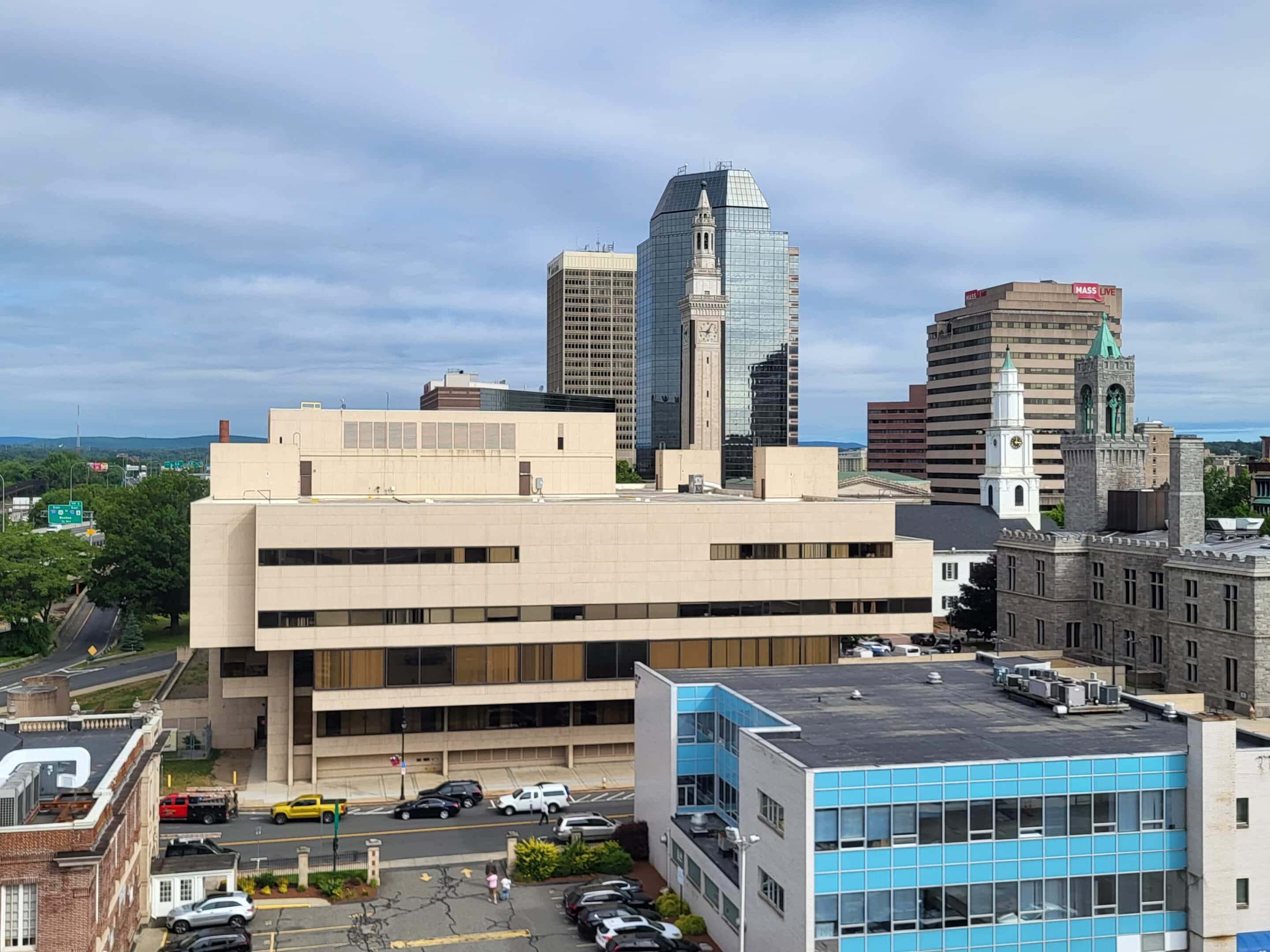SPRINGFIELD — The Springfield City Council is appealing a recent ruling by the Massachusetts Appeals Court that gives more life to a controversial biomass plant proposal by Palmer Renewable Energy.
Despite years of opposition from environmental advocates and Springfield city councilors, the Appeals Court decided on May 8 that PRE’s previously expired permits for 35-megawatt biomass power plant project were actually valid due to a post-Recession law meant to stimulate development.
In response to this ruling, the City Council — which has been battling against PRE for 14 years — voted 7-0 in favor of appealing the court’s decision. The fight will now head to the Massachusetts Supreme Judicial Court.
“We are hopeful that the SJC will hear our case and put an end to this seemingly interminable dispute,” said Springfield City Council President Michael Fenton. “The law in Massachusetts says a building permit is only good for six months, but the developer contends that a building permit from almost 14 years ago is still valid. Allowing such an old permit to avoid expiration would be, in my opinion, the definition of an absurd result. It’s time to let this bad idea go.”
According to previous Reminder Publishing reporting, the city originally granted a special permit to PRE in 2008 for the buildout of a biomass power plant at 1000 Page Blvd. in East Springfield. Since that time, the council and PRE have gone back-and-forth in court as opposition for the plant among councilors and residents continued to grow.
In 2021, the Massachusetts Department of Environmental Protection revoked the air permit it granted PRE in 2012, ostensibly ending any chance of the project from advancing. But the project is now revived after the Appeals Court decided to reinstate building permits that the city granted to PRE in 2011.
The recent litigation says state building code requires commencement of construction to occur within 180 days after a building permit is granted, but PRE argued that their failure to comply with that law was because of the City Council’s decision to make zoning amendments in 2013, which required special use permit from the council for projects as large as the biomass one.
Advocates and representatives of the council were distraught by the Appeals Court decision to reinstate the 2011 permits.
“The court decision is disappointing, especially considering that Springfield community members and elected officials have said no to this plant for a decade,” said Suhasini Ghosh, staff attorney for Conservation Law Foundation, the body representing the council in court. “The developer’s permits don’t reflect today’s laws, and the facility will bring harm and pollution to a community that does not want or need more dirty air. CLF will not stop in its fight for clean air for everyone in Springfield.”
Detractors of the project are arguing that the buildout of the biomass plant would exacerbate air pollution in a community that was ranked the fourth worst asthma capital in the nation in 2024 and the worst in 2019.
The court’s decision to reinstate the permits also comes at a time when the federal government elected to terminate a $20 million EPA grant and a $1 million asthma prevention grant. The City Council recently approved a resolution urging the EPA to restore the grant, which aimed to modernize critical infrastructure and improve public health, safety, transportation and environmental resilience in the city of Springfield.
“Not only did we take this gut punch on the $20 million; we took the gut punch of seeing biomass get another breath of fresh air, said City Councilor Tim Allen at an early May City Council meeting. “We need to fight for the health of Springfield, Mass.”
Immediately following the ruling by the Appeals Court, 86 organizations sent a letter to the state’s Joint Committee on Telecommunications, Utilities & Energy urging the body to take further action in removing subsidies for polluting biomass energy.
The letter, which includes signatures from Climate Action Now Western Mass. and CLF, requests that the committee advance two bills to remove subsidies for wood-burning in Mass.’ ratepayer-funded clean energy programs.
One of the bills would close a loophole that allows municipal light plants to count biomass power toward their climate and clean energy goals, while the second would limit subsidies for wood heating in the state’s alternative portfolio standard.
Both bills are sponsored by state Sen. Adam Gomez (D-Springfield) and state Rep. Orlando Ramos (D-Springfield).
“It is long overdue that the Legislature reaffirms our commitment to protecting the environment and removes subsidies from our clean energy programs that allow for wood-burning and woody biomass to continue polluting our environment,” Gomez said in a statement. “I am proud to sponsor this bill in the Senate and fight for changes that directly impact my community, and hope that this will be the year we can get it over the finish line.”
In a statement following the council’s decision to fight the Appeals Court ruling, Alex St. Pierre — the director communities and toxics at CLF — said CLF will not allow a “zombie permit to crawl its way into an already overburdened community.”
“Springfield families have spent over a decade fighting to keep this polluting project out of their neighborhood, and now the legal seesaw continues,” St. Pierre said. “But what’s never been up for debate is that pumping more smoke into neighborhoods already grappling with asthma and air pollution is a bad idea — plain and simple.”
Reminder Publishing reached out to PRE’s lawyer for comment about the council’s appeal, but did not hear back as of press time.


